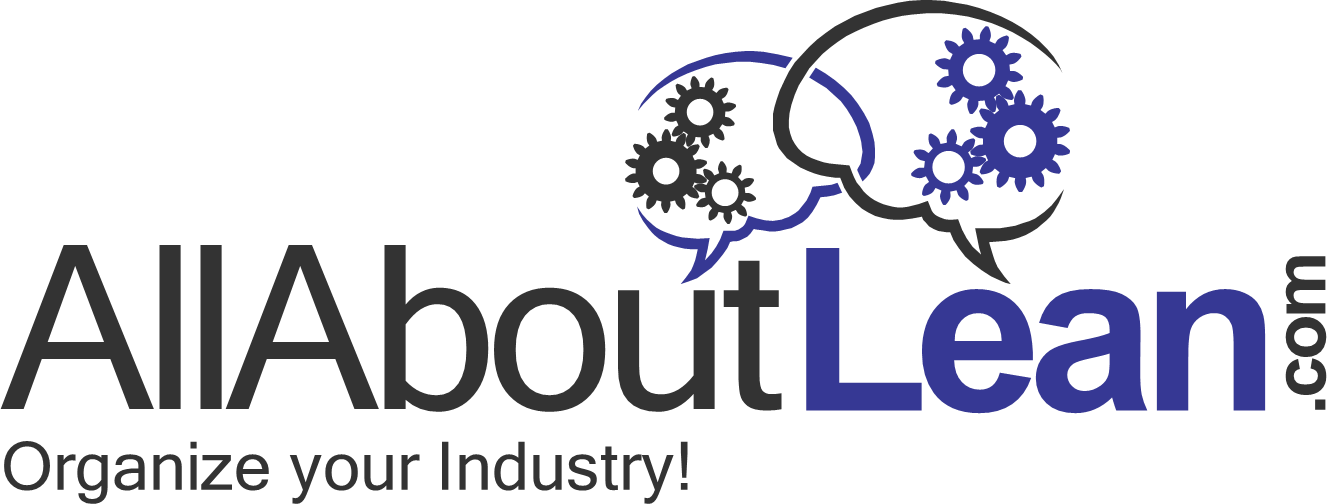 In my last two posts I talked on how to set up a changeover wheel or, more generally, a changeover sequence. Next I will show you how to use a changeover wheel. The idea is simple, but there are some pitfalls as well as some tricks to make it easier. Let’s have a look.
In my last two posts I talked on how to set up a changeover wheel or, more generally, a changeover sequence. Next I will show you how to use a changeover wheel. The idea is simple, but there are some pitfalls as well as some tricks to make it easier. Let’s have a look.
Lean Tools
Posts related to different lean tools, often also known as the lean toolbox. Different methods that can be used to improve the shop floor, although it is risky to use methods on their own without a whole lean system.
A Few More Turns on the Changeover Wheel – Part 4: Options for Prioritizing
A Few More Turns on the Changeover Wheel – Part 3: Prioritizing Jobs
 In my last posts I talked on how to set up a changeover wheel or, more generally, a changeover sequence. Next I will show you how to use a changeover wheel. You have to fit you prioritized production into the sequence. The idea is simple, but there are some pitfalls as well as some tricks to make it easier. I will talk more about the pitfalls in my next post. Let’s have a look on how to fill the changeover wheel with actual production jobs.
In my last posts I talked on how to set up a changeover wheel or, more generally, a changeover sequence. Next I will show you how to use a changeover wheel. You have to fit you prioritized production into the sequence. The idea is simple, but there are some pitfalls as well as some tricks to make it easier. I will talk more about the pitfalls in my next post. Let’s have a look on how to fill the changeover wheel with actual production jobs.
A Few More Turns on the Changeover Wheel – Part 2: Improving the Sequence
 In my last post I looked at how to create a changeover sequence. However, this was only the first draft of such a sequence. For a truly good sequence, you need to spend some more time optimizing the sequence. Try to get a better sequence, even though it is impossible to find the perfect solution even for a moderate number of products. I also give a suggestion on how to visualize a changeover wheel in Excel.
In my last post I looked at how to create a changeover sequence. However, this was only the first draft of such a sequence. For a truly good sequence, you need to spend some more time optimizing the sequence. Try to get a better sequence, even though it is impossible to find the perfect solution even for a moderate number of products. I also give a suggestion on how to visualize a changeover wheel in Excel.
A Few More Turns on the Changeover Wheel – Part 1: Creating a Sequence
 The changeover wheel is a visualization of a good changeover sequence. In this series of posts I will go deeper on how to use such a changeover sequence in planning your production sequence. The concept itself is simple, but there are still some pitfalls in using it. This first post looks deeper at generating a first sequence. My next post will then optimize the sequence, where we will also learn why you probably should not shoot for the perfect solution, but merely for good enough.
The changeover wheel is a visualization of a good changeover sequence. In this series of posts I will go deeper on how to use such a changeover sequence in planning your production sequence. The concept itself is simple, but there are still some pitfalls in using it. This first post looks deeper at generating a first sequence. My next post will then optimize the sequence, where we will also learn why you probably should not shoot for the perfect solution, but merely for good enough.
Can You Plan Around Your Fluctuations?
 Balancing the need of high material availability with low inventory is tricky. Pull systems are a very good way to achieve this. But sometimes people argue with me that planning can be better if you use all the available information to create a production plan which then outperforms a pull system. In theory, this could work, but in practice it rarely does. After all, that is what conventional push systems are trying to achieve, usually with mediocre results. Let’s have a look.
Balancing the need of high material availability with low inventory is tricky. Pull systems are a very good way to achieve this. But sometimes people argue with me that planning can be better if you use all the available information to create a production plan which then outperforms a pull system. In theory, this could work, but in practice it rarely does. After all, that is what conventional push systems are trying to achieve, usually with mediocre results. Let’s have a look.
What Is True North in Lean?
 Lean manufacturing often talks about true north. This is the direction in which your operations should move to become better. Sometimes that may be a bit fuzzy, so let’s have a look at what true north could include.
Lean manufacturing often talks about true north. This is the direction in which your operations should move to become better. Sometimes that may be a bit fuzzy, so let’s have a look at what true north could include.
I am fully aware that reaching true north in all aspects is unrealistic. If you actually reached true north, there would be nothing left to improve… which goes against my beliefs in manufacturing. You can always get better! Hence, achieving the list below is not realistic. But hey, as I am writing this, it is almost Christmas, and it is okay to make a wish! I hope that this unrealistic list helps you to get closer to true north in at least some aspects.
How to Roll Out a Lean Transformation
 The goal of a lean transformation is to shift the culture of an organization toward lean. In my last post I discussed a lot of prerequisites. In this post I would like to discuss how to actually do it. Be warned, there is no magic bullet. There is no simple trick that just turns lean on. It is a lot of hard work.
The goal of a lean transformation is to shift the culture of an organization toward lean. In my last post I discussed a lot of prerequisites. In this post I would like to discuss how to actually do it. Be warned, there is no magic bullet. There is no simple trick that just turns lean on. It is a lot of hard work.

